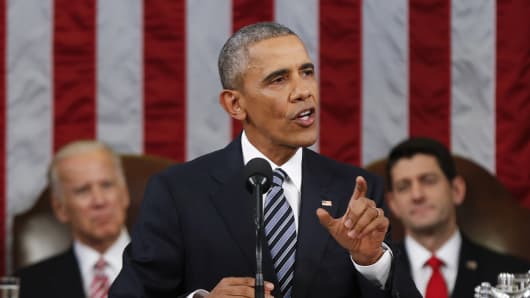
After the Paris Climate Conference (COP 21), Obama pushed for environmental conservation measures to ensure that US emissions are below the established threshold. On Tuesday February 9th, 2016, the Supreme Court decided to halt the implementation of the clean power plan (one of Obama's proposal), which would reduce carbon dioxide emissions from existing power plants.
The Supreme Court will most likely hear this case after President Obama officially leaves office. Bruce Huber, a professor from Notre Dame Law School, believes, "this is an exceedingly uncommon situation for the court to step in, and it jeopardizes the plan all together from going into affect while President Obama remains in office."
Several proponents of the plan believe that the conservative Supreme Court justices have a very strong opinion on the issue since the United States Court of Appeals for the D.C. Circuit has not heard oral arguments on the subject yet and since industries and states would not have to abide by the new rules for another two years. This raises a few questions because the Supreme Court is supposed to seem objective and nonpolitical. Due to natural biases, the four liberal justices are against the order, while the five conservative justices are in favor of the order.
To what extent should the Supreme Court justices be nonpolitical? Would it make much of a difference if the Supreme Court halted the clean power plan after it reached the high court? If the Supreme Court overturned the constitutionality of the plan, what other proposals should be made to limit carbon emissions?
Sources:
http://www.cnn.com/2016/02/09/politics/supreme-court-obama-epa-climate-change/index.html
http://www.usatoday.com/story/news/politics/2016/02/09/supreme-court-halts-obamas-emissions-rule/80085182/
http://www.cnbc.com/2016/02/09/us-supreme-court-blocks-obama-carbon-emissions-plan.html
3 comments:
I believe that the very nature of the SCOTUS is very political. The fact that the POTUS has to select a potential Justice and have him/her be approved by the Senate will obviously politicize the process. In addition, the Justice will most likely rule in favor of the president's ideology as a return in favor. Clarence Thomas is an excellent example of this. He is always voting in cases in favor of the Republican agenda or corporate America. I think that we should accept that the SCOTUS is already extremely politicized as it is. This is one of the reasons why I hate the fact that the SCOTUS does not allow cameras inside the courtroom during the oral arguments. People will argue that if the news were to cover the SCOTUS then it would politicize the court but to me the court is politicized as it is thus we should be able to cover them on the news like the POTUS and Congress.
Technically, the SCOTUS shouldn't be political at all; and it should only be ruling in favor of what they think the constitution states. However, when the topic is not specifically addressed by the constitution, the decision really becomes a matter of what the justices believe is the best for the nation. The problem with this is that the justices' ideas of what is best for people usually aligns with political motives. So that's not helpful. Especially because justices are appointed by the president in power, it's kinda hard to believe that the SCOTUS could ever truly not be political.
It does seem like the Supreme Court justices are being political here, as according to the New York Times, "The 5-to-4 vote, with the court’s four liberal members dissenting, was unprecedented — the Supreme Court had never before granted a request to halt a regulation before review by a federal appeals court." I agree with the Steven and Jonathan that it's hard for the Supreme Court to be completely nonpolitical, as the justices do have their individual political and judicial beliefs and will make decisions based off of that.
If the lower court or the Supreme Court decided that the plan was unconstitutional, I'm not sure what else could be done. The reason why people think the plan is unconstitutional is because they say that the EPA does not have the legal authority to regulate power plants and authorize this rule. According to the Atlantic, in the Clean Power Plan, the EPA is trying to regulate this through an obscure part of the Clean Air Act. This article (http://www.theatlantic.com/politics/archive/2015/05/federal-coercion-and-the-epas-clean-power-plan/393389/) goes into a lot more detail about exactly what the EPA is trying to do with the Clean Power Plan. Some other options for limiting carbon emissions include a cap-and-trade system or a carbon tax, but if the EPA can't authorize the Clean Power Plan, I don't think they can authorize the other systems either, so it would have to be passed through Congress, which seems unlikely.
http://www.nytimes.com/2016/02/10/us/politics/supreme-court-blocks-obama-epa-coal-emissions-regulations.html?smid=pl-share
http://www.cnn.com/2016/02/09/politics/supreme-court-obama-epa-climate-change/index.html
Post a Comment